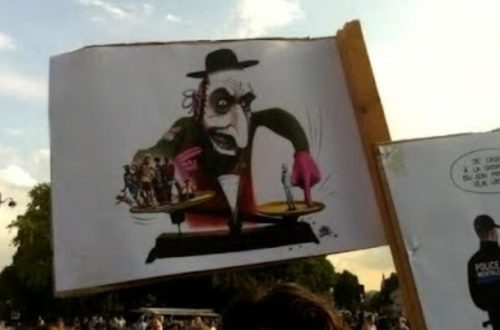We have received this article from the person who complained to the Guardian’s Readers’ Editor
Dr Johnson famously said, “a play read, affects the mind like a play acted”. After viewing The Guardian’s production of Seven Jewish Children, I am left in no doubt that Dr Johnson was wrong. The impact of the play is far greater in The Guardian’s production than on the page. For one thing, the use of a single actor emphasises what was already inherent in the text: this is not a play about Jewish characters, but about Jews generally. In other words, it deals in archetypes, or (to use language which The Guardian of the 1980s would have appreciated) stereotypes.
The Guardian Reader’s Editor has rejected my complaint that it was inconsistent with The Guardian’s core values to stage and publish its own production of the play. She accepts that one possible interpretation of the play is that it is a modern form of “the medieval blood-libel of Jews rejoicing in the murder of little children”. However, apparently because “there are other readings of the play”, putting on the production was consistent with The Guardian’s core values.
The issue is not the difference between “art” and “journalism”. All language is to some extent open to different readings. That does not absolve us from the responsibility of making our own judgment as to what is the true reading. This is perhaps even more important with art than journalism, because of the power of art to influence. The Guardian cannot justify its decision to put on this production by relying on the fact that it is an artistic work about which there are differing opinions. Nor should it ignore the possibility that it is not only campaigners against anti-semitism who will interpret the play as an affirmation of some pernicious prejudices.
Also see Norm and Gaby Charing


